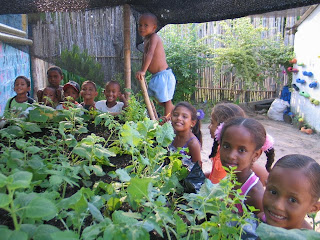We are referring to questions such as: Is man good or bad at birth? (it is not necessary for this analysis to define what is good and what is bad). Are we born with characteristics of solidarity or individualism? Is sharing part of our genetic heritage or are we selfish by nature? Are we intrinsically ambitious or do we tend towards altruism? And so we could continue with some others.
To begin this analysis, as a first term we should be able to distinguish with a fair degree of precision, which are the characteristics of our personality with which we are born and which are instilled in us from birth itself, or perhaps a little earlier, through what our senses perceive from the behavior of other human beings.
Our genetic heritage not only determines our physical characteristics, but also contains information that has to do with our personality, abilities, etc.
However, the experiences and events that we accumulate in our lives depending on the environment in which we live, the education we receive, and what our senses perceive shape, in some cases accentuating and in others “forgetting” some of the personality characteristics with which we are born.
This is so true that, for example, a child who has been abused or beaten as a child has a much greater chance of becoming an abuser or batterer when he or she grows up. Those who grow up in a violent environment will most likely consider violence to be something natural and incorporate this characteristic into their adult behavior. On the contrary, those who are surrounded by supportive and altruistic people during their childhood will also have a greater chance of becoming one.
We could therefore infer that, although we are born with a great deal of genetic information, the influence of the environment, especially during the first years of our lives, is very important in the characteristics of our future personality. This does not mean that two children raised in the same environment would have the same personality, since this is formed not only by the genetic information that we bring and the environment that surrounds us, but also by the interrelation of the child with that environment.
In this way we see the true importance of education for a radical change in human social and environmental behavior.
The incorporation of environmental values in children, both by educational institutions and by their own parents and anyone with whom this child has contact at an early age, will "convert" him or her, or at least greatly increase the probability of him or her becoming a person with great respect for the care of the environment.
The expected evolution of human beings towards a more altruistic vision, an obligatory starting point for transforming the world into a more just and supportive place, with environmental and social awareness, depends to a great extent on the environmental and social education, both institutional and familial, that they receive.
Let us then put our greatest effort into this area, let us plant these seeds in our children and, sooner rather than later, we will realize that change is possible and is already underway.
Ricardo Natalichio – Director EcoPortal.net
Environment and Society Editorial No. 424
![]()

